The impact of COVID-19 on the Lake Chad Basin region: the case of Yobe State, north-east Nigeria
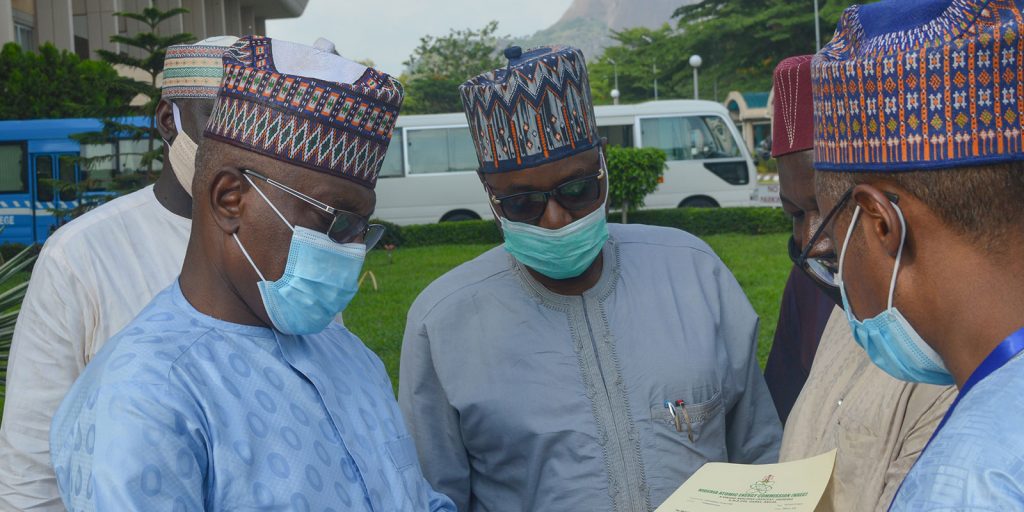
The impact of COVID-19 on the citizens of the Lake Chad Basin region – and, in particular, the BAY states of Borno, Adamawa and Yobe – has been severe. The pandemic came at a time when the states were starting to recover from the devastating effect of the Boko Haram insurgency. COVID-19 has affected the post-insurgency recovery, livelihood support and infrastructure development activities undertaken by the respective state governments, partners and donors in the region.
Africa and the implications of a second wave of COVID-19 infections
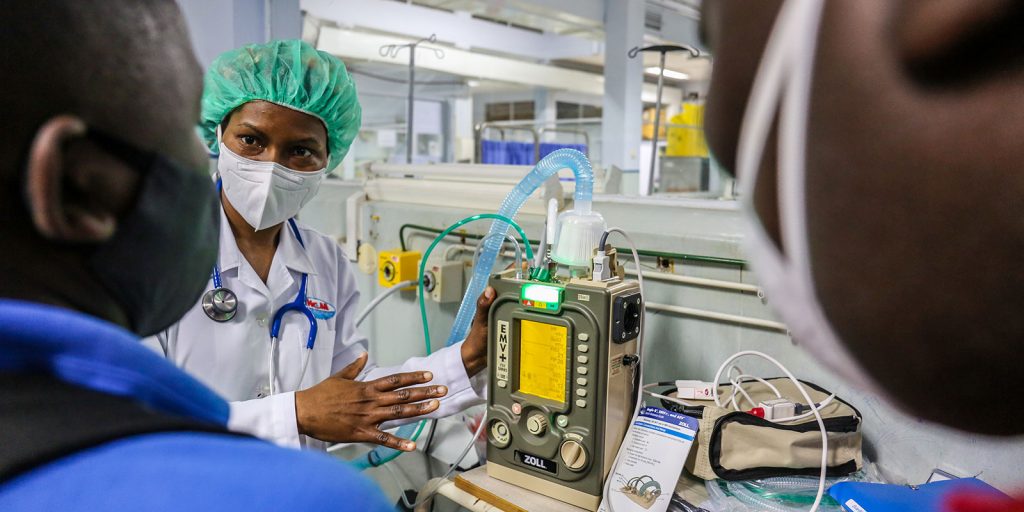
While Africa has demonstrated a degree of resilience against the COVID-19 pandemic to date, this progress could be affected by a potential second wave of infections. If such a second wave is even worse than the first, which seems to be the pattern in Europe, it will have serious implications for Africa’s health systems, as well as its economy and the growing debt crisis. This situation presents additional challenges for the Africa Centres for Disease Control and Prevention (Africa CDC), which has thus far played a leading role in coordinating prevention measures and promoting a coherent African response.
The implications of COVID-19 global vaccine politics for Africa
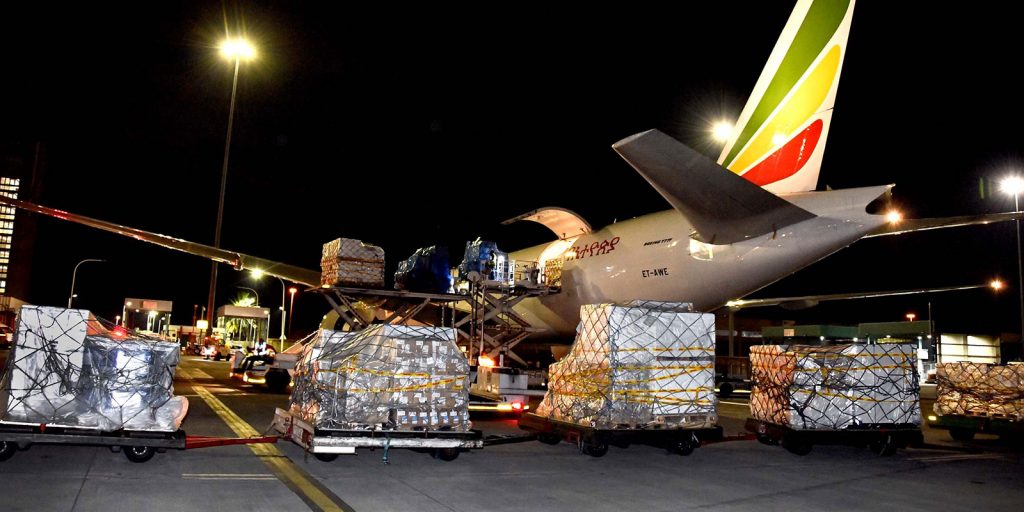
In the past few days, the dominant debates on COVID-19 have included the development of a vaccine and making it available to a desperate 7.2 billion people worldwide, against the background of an alarming 54.8 million cases of infection and 1.4 million deaths. Three potential vaccines, with promising clinical trial results, have been announced in the last few weeks in the United States (US), Europe and Russia, leaving Africa isolated and marginalised as the developed world engages in highly competitive discoveries.
The impact of COVID-19 on the delicate peace process in South Sudan
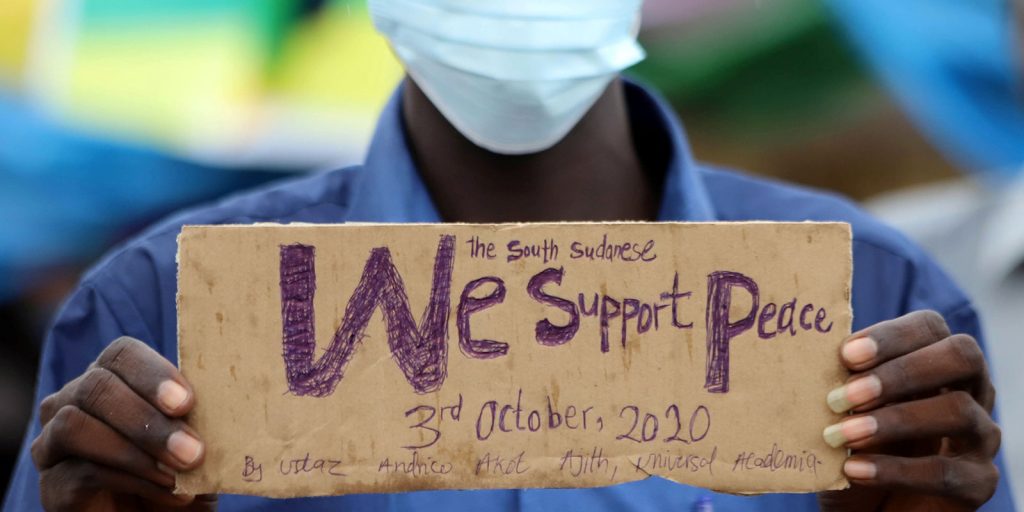
The COVID-19 pandemic has significantly disrupted peace processes in Africa. In South Sudan, COVID-19 has not only presented a risk to the health and socio-economic circumstances of the citizenry but has also put a strain on the 2018 Revitalized Agreement on the Resolution of the Conflict in the Republic of South Sudan (R-ARCSS). More efforts will have to be made to minimise the impact of the pandemic on the political processes around power-sharing and security reforms, as well as the preparation for elections at the end of the transitional period.
Using the African Continental Free Trade Area to adapt and recover from the COVID-19 pandemic
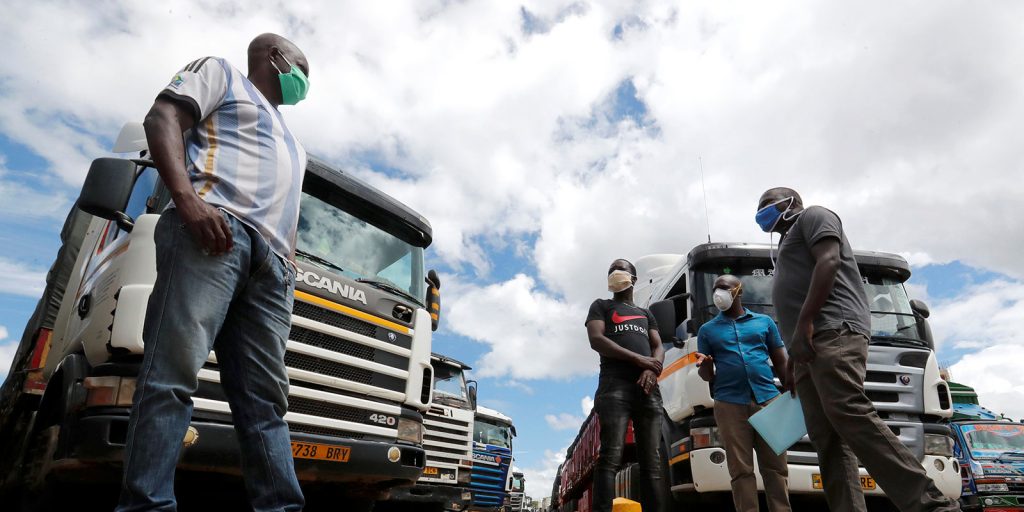
Some of the key words in the unprecedented era of the COVID-19 pandemic are disruption, damage, change, adaptation, recovery and resilience. Against the background of these words, what is clear is that the COVID-19 pandemic has disrupted the status quo as we knew it. In this change, the pandemic has also challenged the interdependence of economies, leading to the disruption of global and regional supply chains. Some of the countries’ early responses to the pandemic were increased protectionist measures, especially with regard to the supply of personal protective equipment.
Lessons from COVID-19 for effective governance and sustainable peace in Africa
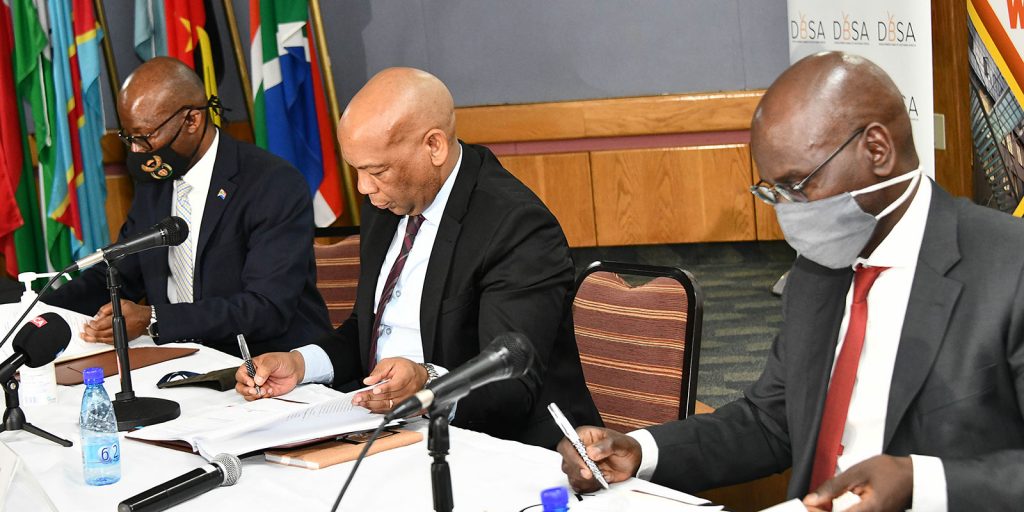
COVID-19 has been quite a challenge to the world. It has made us question so many of the things we took for granted. It has changed the outlook and stereotypes we had about the world and humanity. For example, nobody imagined that with the current developments in technology and medicine, a pandemic could bring the world to its knees like this one has. COVID-19 has also questioned the impression we in Africa had that pandemics kill so many of our people, because of our lack of resources in terms of knowledge and facilities. This pandemic has shown that the world realities are more complex than we thought we know and we have mastered.
The 2020 American elections amidst COVID-19: Implications for Africa’s electoral democracy
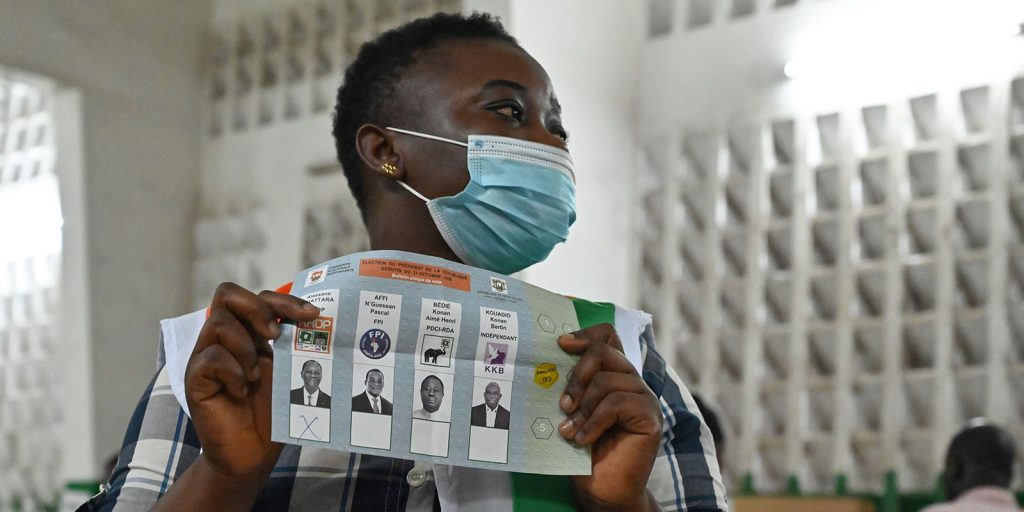
The 2020 United States of America (USA) elections were held during a deadly COVID-19 pandemic wherein many countries’ economies declined, and civil and human rights were suspended. Globally, the pandemic outbreak seriously questioned the traditions and norms, even in elections management. Many countries’ elections, by-elections, referenda, and all civic matters like meetings in villages, towns or cities were suspended indefinitely following subsequent lockdowns. Similarly, conflict resolution efforts, especially in Africa, were also adversely affected as security was tightened increasingly through lockdowns, and curtailment of inter-state travel.
Future implications of the impact of COVID-19 on governance and public service

What will governance and public service be like post COVID-19? We will not and should not revert to “business as usual” after this crisis. We should draw on the maxim from the United Nations (UN) 2030 agenda – the Sustainable Development Goals (SDGs) – to “leave no one behind” in achieving a more sustainable, equitable, inclusive and secure/peaceful future. We should start a dialogue about the current and future implications of COVID-19 on governance and public service.
COVID-19 has revealed an Africa characterised by resilience rather than conflict
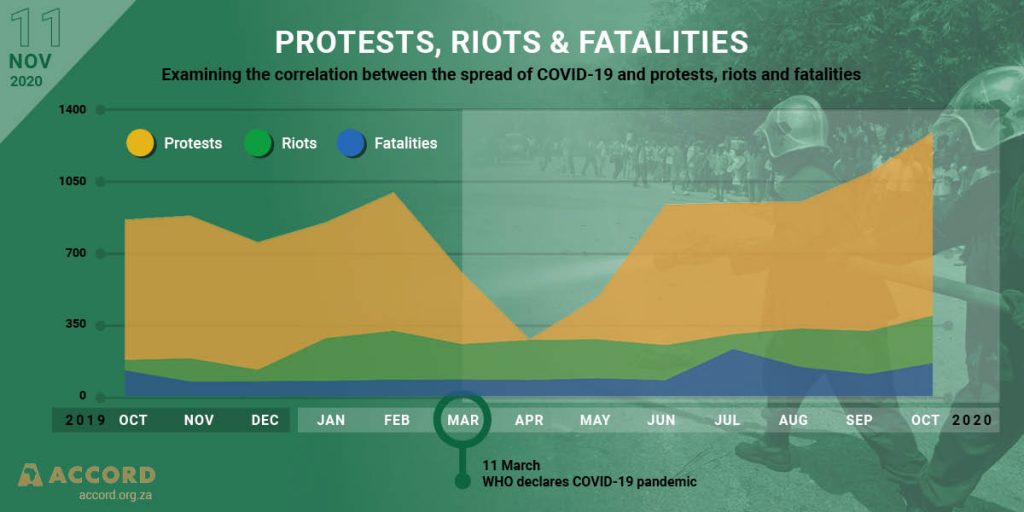
It is now 245 days since the World Health Organization (WHO) declared that COVID-19 constitutes a global pandemic, on 11 March 2020. Many commentators predicted that Africa, with its high levels of poverty, fragile institutions and weak public health systems, would be particularly badly affected by COVID-19, and that it could result in the collapse of social and political stability. Despite rising numbers of infections and severe economic hardships, Africa’s public health systems have not been overwhelmed, people in need have found support and the social order has not disintegrated.
The cessation of hostilities during the COVID-19 pandemic
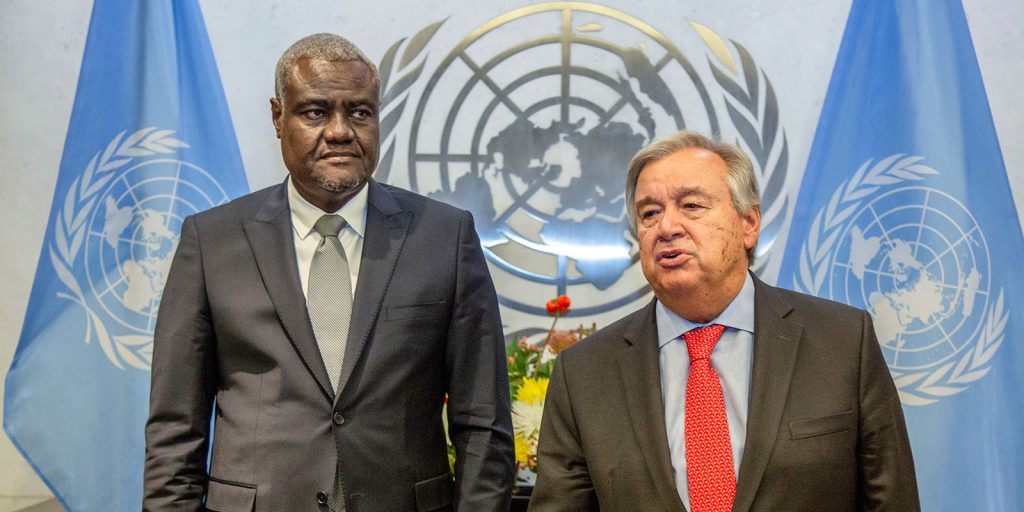
During events to commemorate 75 years since the formation of the United Nations (UN), Secretary-General António Guterres repeated his earlier call to world leaders to achieve a global ceasefire. In this call, the UNSG correctly stated that it is “time for a stepped-up push for peace to achieve a global ceasefire”, because we are all confronted by “one common enemy: COVID-19”. Indeed, in a year that is so significant in many ways, there has never been such a crucial moment in our lifetime to build, consolidate and sustain peace.
